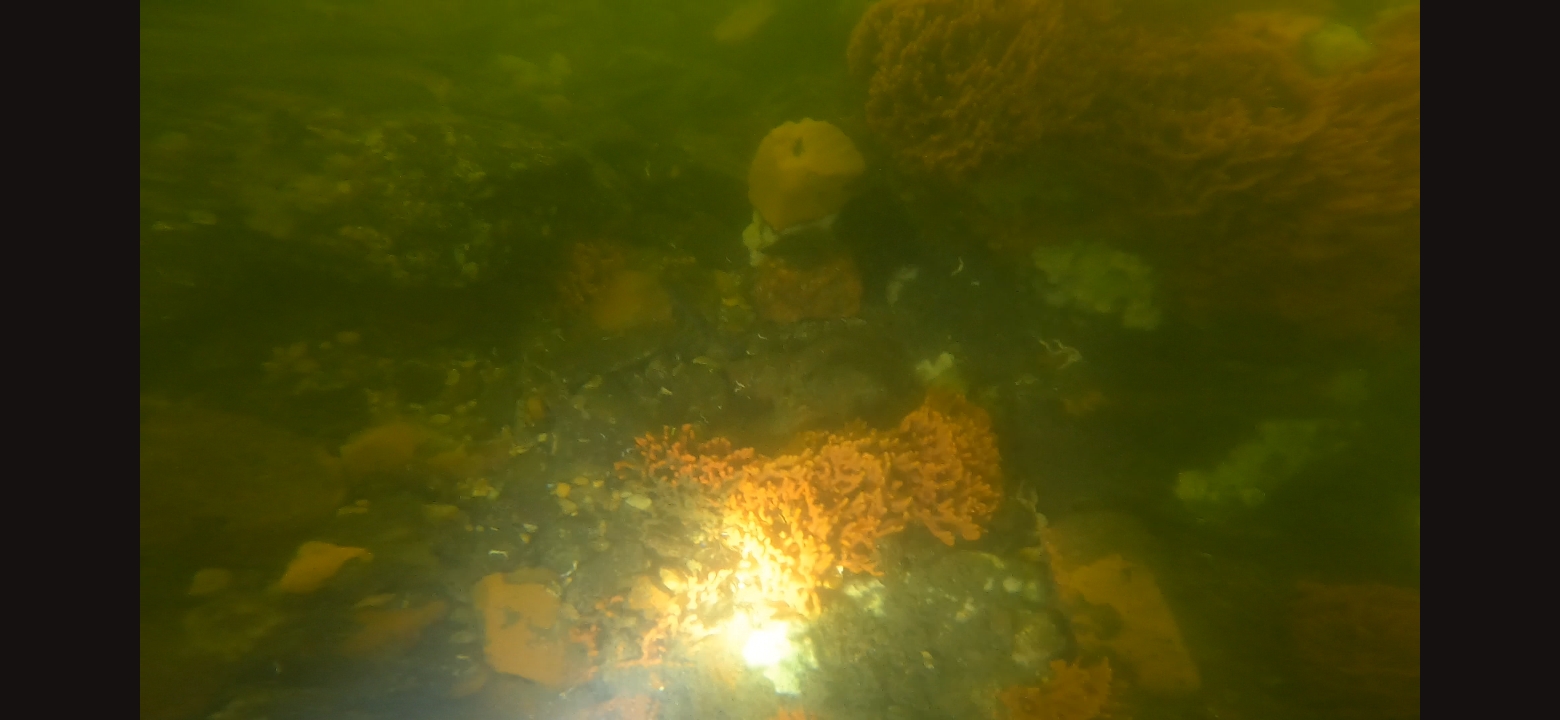Difficulty
Unrated
Viz (last reported 35453h ago)
Max Depth
Unknown
Snorkeling and Scuba Diving at The Manasquan Railroad Bridge
It offers very easy entry, parking next to the water. Underwater it offers local salt water fish and occasional tropical species
Point Pleasant
Access
shore
View
Nearby Shops
Tide Report
5
4
3
2
1
(6)

R Bennett
Jul 15, 2013, 12:00 AM
scuba
I went diving at the Manasquan Railroad Bridge today 7/15/13. As the tide was coming in the visibility wasn't great, but once the tide slacked I had about 4-5 feet of visibility. Water was still cold, but the bottom was filled with life. I saw about two dozen baby fluke 2 to 5 inches literally everywhere. Black Seabass were all around and there seemed to be a fair amount of blue crabs as well. Many starfish and schools of killies and a few scattered Blackfish. I was talking to another diver as I was leaving and he swore that earlier in the week he spotted what he believed to be barracudas and he said that he saw a school of squid for his first time ever in the river. He also was talking about how Superstorm Sandy seemed to bring a lot of fish he hadn't seen in the river in years, like blow fish and trigger fish. Hope this helps -Enjoy!
Originally posted on shorediving.com
Jerry
Jun 26, 2010, 12:00 AM
scuba
Easy entry, a ramp leading into the water, and an interesting assortment of marine life make this site worth diving for the beginner and intermediate diver. If visibility is good, the area around the bridge provides a great opportunity to observe the fish which congregate around the support structures. If the marine life is not present, interesting bottles can still be found along the bottom. At this site you will find black fish, flat fish, bergalls and others that are typical of the New Jersey coast. Watch for the unexpected. Puffer fish and tropical fish can be carried in with the tide. As is true of other shore diving sites in New Jersey, conditions vary. Visibility can be less than a foot to fifteen feet or better. An approximate average for this season has been between four to six feet. The bottom at this site slopes on both sides, with a deeper channel in the middle. Approximate depth in the channel is 24 feet. Excessive activity will disturb the bottom and decrease visibility. A slow and easy pace provides the best experience. It is also best to visit this site when it is not crowded with large groups of divers or dive students. Catch an early tide or dive on a weekday. Divers planning to visit this site should note that the TIDE PREDICTIONS are often wrong. Check the current on both sides of the bridge before diving. Some experienced divers of this site drop a clam shell into the water near the bridge to judge current and visibility. Ignore or misjudge the incoming current and you will spend your dive holding onto objects on the bottom or you will be pushed into the marina. Entering the marina could subject you to a summons and could jeopardize diving at this site for everyone. The docking area for fishing boats, to the East of the bridge, is also best avoided. Another issue at this site is occasional power boat traffic. This is usually not heavy, but power boats can travel through the dive area. Some tie up along the bulkhead. Carry a dive flag and surface near it. The area around and under the bridge contains rubble, some of which rises from the bottom. In good visibility, this should not be a problem. The length of a dive at this site can be limited by the current. Pay attention to the current change after slack, and end your dive before the current becomes too strong. Night Diving: Not sure if this is permitted. Park Closes at Dusk is posted on a sign.
Originally posted on shorediving.com
Jim Homan
Feb 5, 2008, 12:00 AM
scuba
This is a wonderful site, provided you are ready to enter the water precisely at high slack tide. During the late summer and early fall, divers can find juvenile tropicals that have ridden the Gulf Stream up the East Coast and found shelter in shallow water before gaining size and strength to head back south. Boat traffic sometimes can be a concern, so a dive flag on a float is an absolute must. Although the dive is shallow -- about 35 feet max. -- bottom time is limited to the slack tide. As soon as the tide starts moving out, it is time to exit the water or you may find yourself swept out the Manesquan Inlet to the Atlantic Ocean, a little less than a mile downstream.
Originally posted on shorediving.com
Ray Clark
Dec 26, 2007, 12:00 AM
scuba
Diving at this site no longer requires a permit. The requirement for a permit has been stopped as it was unworkable. -- updated January 2009.
Originally posted on shorediving.com
Ray Clark
Jul 28, 2004, 12:00 AM
scuba
Easy entry and to avoid the silt out caused by the hoards of students, let the current take you under the bridge and explore the brick pile along the RR causeway. Stay away from the marina; it's shallow and nothing to see. On the right side of the park you will now find a port-a-john.
Originally posted on shorediving.com